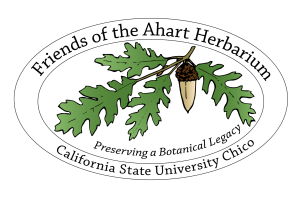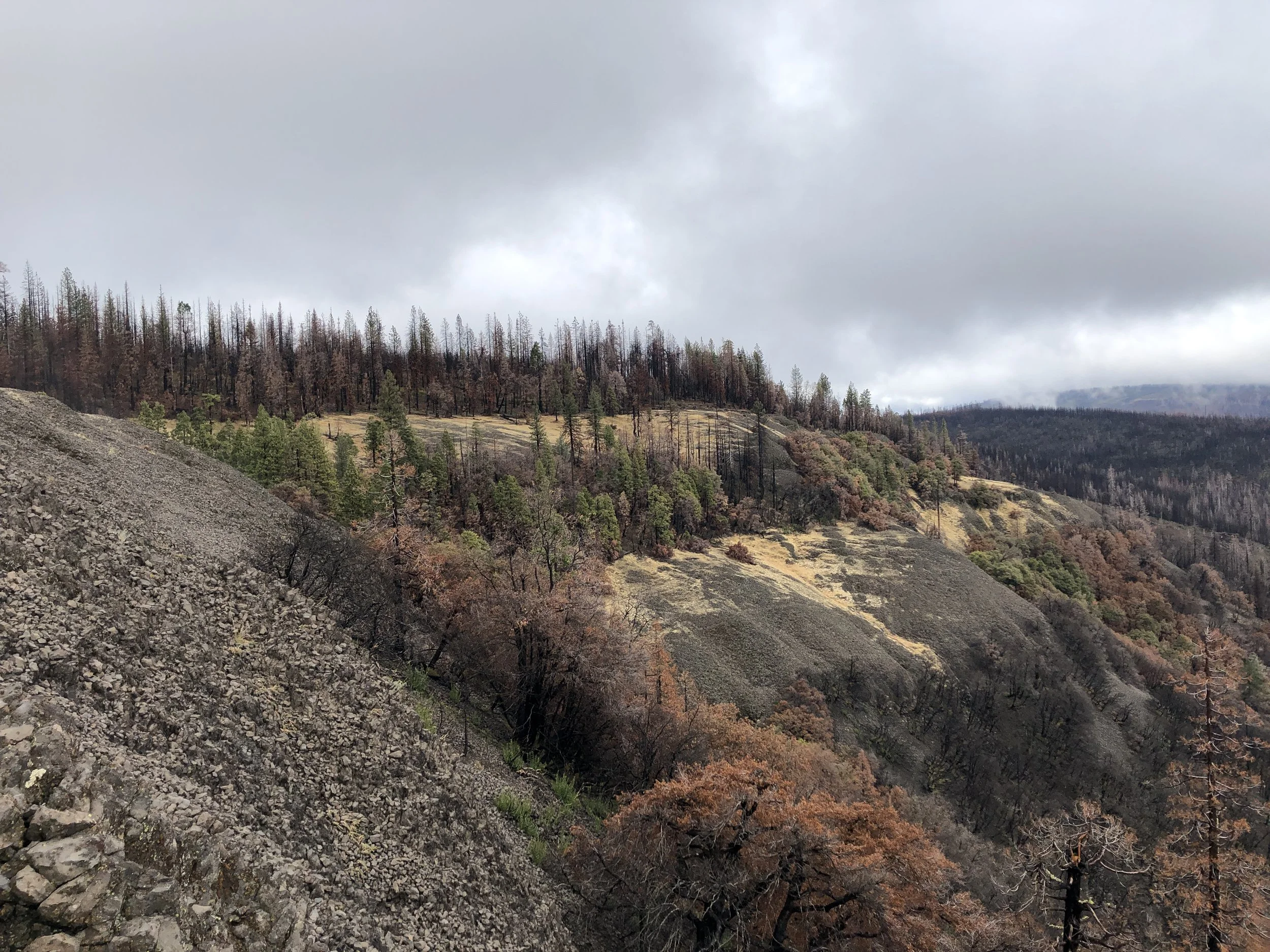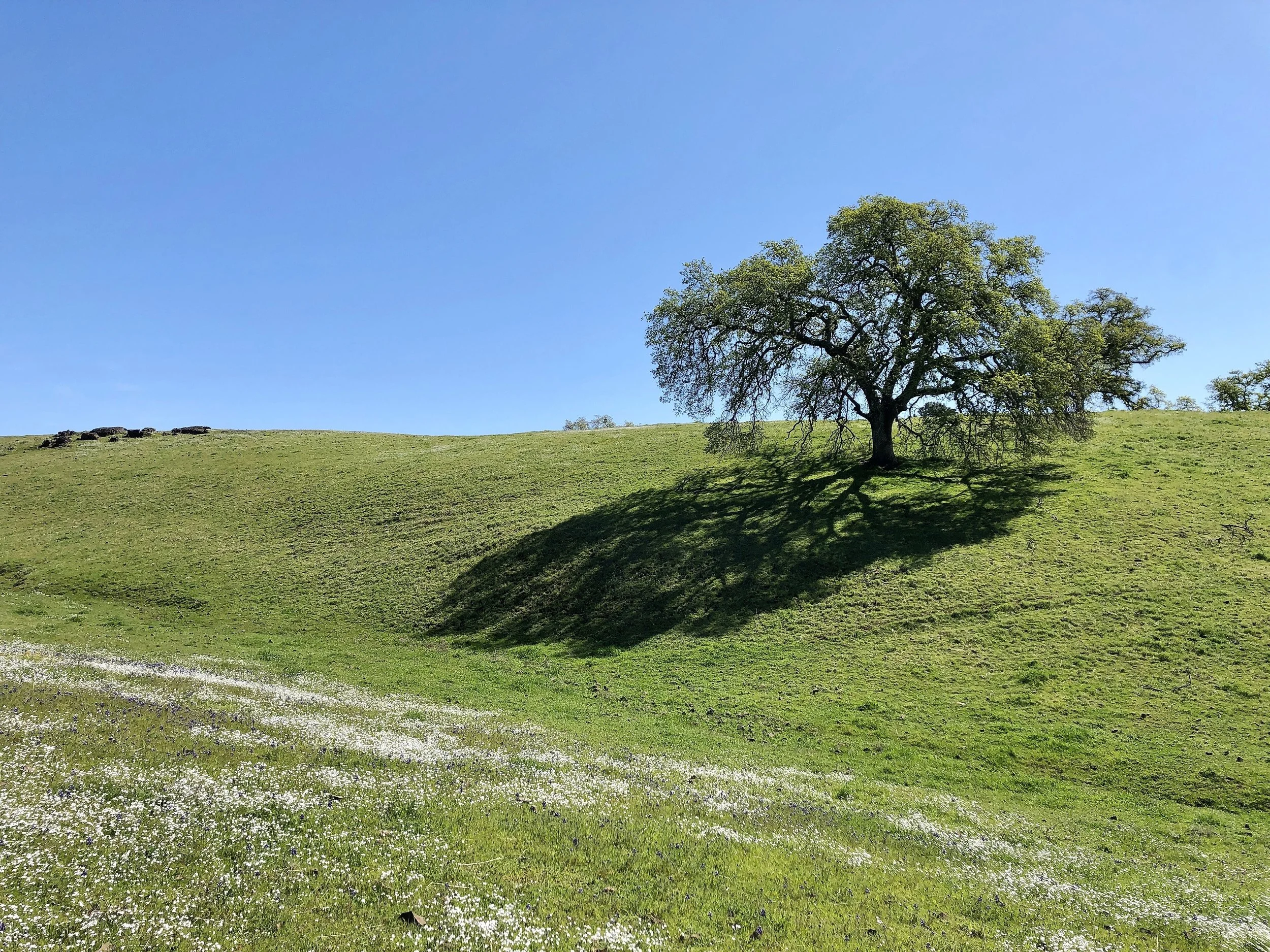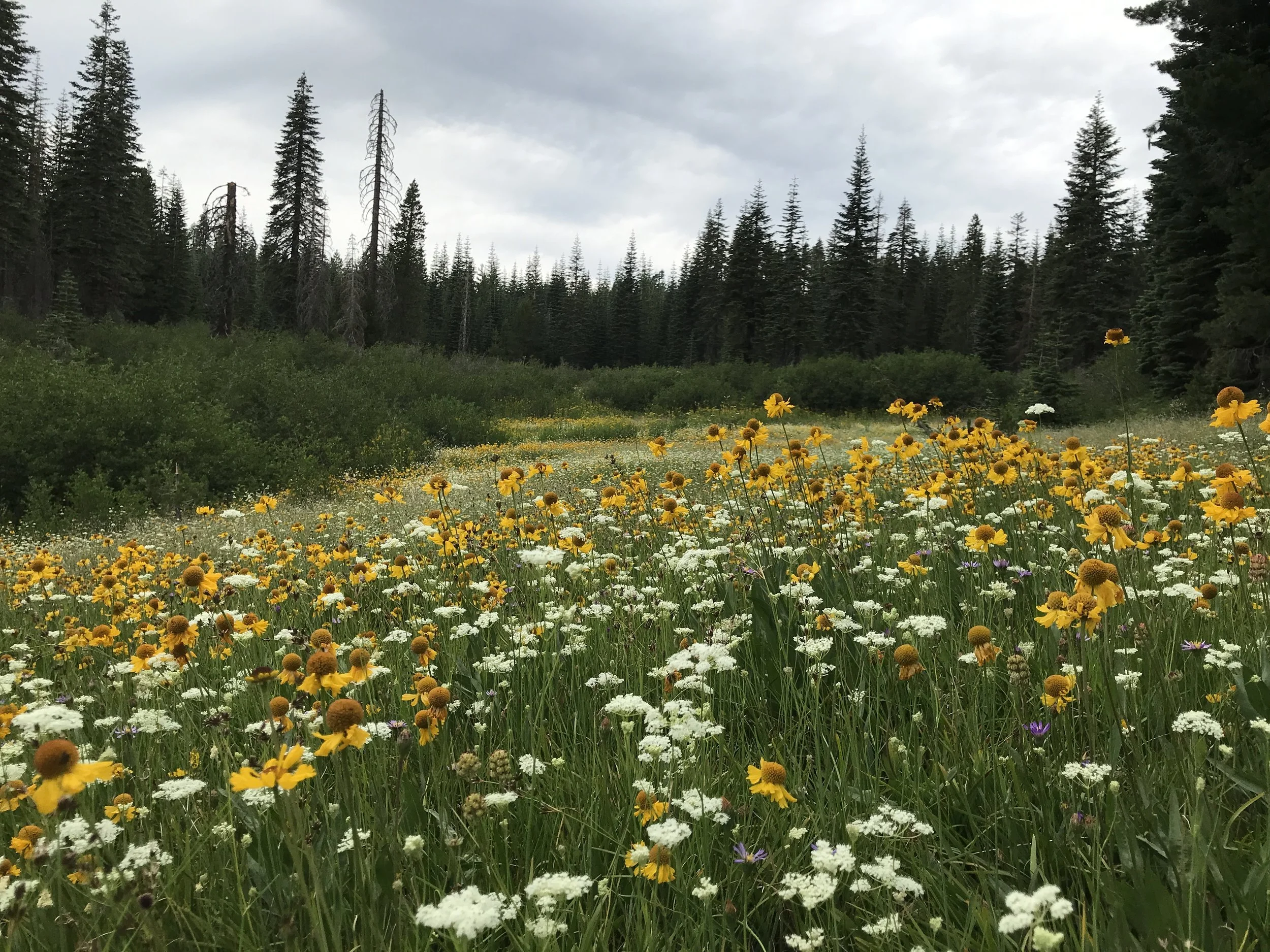Upcoming Workshops and Events
Please follow this link for presentations in our All Things Botanically Related Series.
Join us for a hands-on workshop to explore the identification, diversity, natural history, habitat and plant associations of our local native bee fauna. This workshop is open to all levels of “bee” experience!
Cottonwoods and willows are the most common riparian hardwood species in California and yet many of us have little idea of how to tell them apart. The goal of the workshop is to instill confidence about vegetative characteristics used in the identification keys in The Jepson Manual and familiarize participants with some of the most common willows in California.
Past Workshops and Events
The Friends of the Ahart Herbarium are partnering with the Gateway Science Museum and Cultivating Place to host two spectacular holiday gatherings celebrating native plants, community, science and these longstanding and much-needed North State institutions.
Presented by Tawny Bolinas, 2023 Jim Jokerst Field Botany Grant Award Winner.
View the presentation here.
Join renowned botanist Jon Keeley to learn about the fire regimes in herbaceous, shrubland and forest types throughout California and how different regimes have selected for different fire-adaptations.
View the presentation here.
There are many pests and diseases that cause decline in oak trees. This workshop will explore the common pests of oaks, including a discussion of the biology of the pests and common symptoms and signs of infection. In addition to the common pests, learn about a new and potentially devastating invader in California’s oak woodlands, the Mediterranean Oak Borer!
Create a seasonal and local color palette from Northern California plant-based dyes with artist, designer, and educator Sasha Duerr. Together we’ll learn to “cook with color” and make a unique and biodiverse palette of botanically-dyed samples, finished take-home textiles exploring a range of surface design techniques in the process . . . and connect to a vibrant array of California fall colors.
At 9,037 feet, Mount Eddy is the highest peak in the Klamath Mountains. Be prepared to be enchanted by its dazzling botanical treasures while hiking to its summit!
The Friends of the Ahart Herbarium (FOAH) is celebrating its 30th year of sustaining the Ahart Herbarium at Chico State! Your dedication is helping to build an endowment to secure the Herbarium's future. Our collection of almost 130,000 specimens, continues to serve scientists, students, and plant enthusiasts worldwide. In celebration our accomplishments, we invite you to the no-cost FOAH 30th Anniversary Phytoblitz and Picnic at the Vina Plains Preserve.
Register Here
Celebrate California native plants! Submit your favorite California native plant photo for a chance to win $100.00 and a Friends of the Ahart Herbarium annual membership!
With around 800 species in California, the bryophytes (mosses, liverworts and hornworts) are a fascinating, diverse and ecologically important part of our native flora. The aim of this two-day workshop is to give participants the basic tools they will need to continue learning and enjoying the local bryophytes on their own.
Back by popular demand! Learn more about California native plants while you create a unique holiday wreath. Many of our native chaparral shrubs and forest trees are evergreen, and can remain fragrant for years after drying. Join us for an afternoon of creativity and good cheer!
Join Aaron Sims, Director of the Rare Plant Program for the California Native Plant Society (CNPS) to celebrate five decades of rare plant conservation and the people that make it possible.
View the presentation here.
Forest professionals are often asked to assess the health of trees within private and public lands. But making decisions on the health and probability of mortality trees can be complicated. There are many factors to assess and this workshop will present information to aid in the assessment of the health of trees, particularly California native conifers and oaks. Workshop participants will be shown examples in the field of the most common native forest insects and diseases that impact local forest health.
Cottonwoods and willows are the most common riparian hardwood species in California and yet many of us have little idea of how to tell them apart. The goal of the workshop is to instill confidence about vegetative characteristics used in the identification keys in The Jepson Manual and familiarize participants with some of the most common willows in California.
Join monkeyflower expert Steve Schoenig on an exploration into the beauty and diversity of monkeyflowers (genus Diplacus, Erythranthe, Mimetanthe). Steve will provide hands-on advice for the—sometimes tricky—identification of monkeyflowers and give an overview of the fantastic diversity of mokeyflowers in the state.
Please join Calflora’s Executive Director Cynthia Powell to learn about new Calflora tools for native plant professionals, gardeners, and enthusiasts! How can you better use this incredible resource to learn more about regional plants?
Sorry, this workshop is full.
A group considered difficult by many people, the 90+ California manzanitas are actually easy to identify once you understand the characters and how they vary. Join authors Tom Parker and Mike Vasey to learn about this iconic group of Western North American plants.
Celebrate California native plants! Submit your favorite California native plant photo for a chance to win $100.00 and a Friends of the Ahart Herbarium annual membership!
Sorry, this workshop is full.
What comes to mind when you think of the winter holiday season? Do you think of evergreens and baking spices? Did you know that many of our native chaparral shrubs and forest trees are evergreen, and that native sages can remain fragrant for years after drying? Learn more about native plants while you create a holiday wreath, kissing ball, or garland!
Cottonwoods and willows are the most common riparian hardwood species in California and yet many of us have little idea of how to tell them apart. The goal of the workshop is to instill confidence about vegetative characteristics used in the identification keys in The Jepson Manual and familiarize participants with some of the most common willows in California.
Butterflies are among the most charismatic and easily identified pollinating insects. Join CSU, Chico entomology professor, Dr. Don Miller, to get an introduction to some of the butterfly species found in Butte County, with a special emphasis on their relationships with larval host plants. Dr. Miller will also be conducting the annual butterfly count at the Big Chico Creek Ecological Reserve on the day following the workshop and participants are welcome to join.
Celebrate California native plants! Submit your favorite California native plant photo for a chance to win $100.00 and a Friends of the Ahart Herbarium annual membership!
Sorry, this workshop is full.
Grasses dominate many California landscapes, yet their identification presents a challenge to beginner and experienced botanists alike. This workshop will help you learn the morphological features and terminology used in The Jepson Manual keys so you can confidently key out those tricky species. Dried specimens of more than 20 genera and 45+ species will be provided for participants to key together as a group and as individuals.
The March 4th workshop is full, but we are offering a second Grass Identification workshop on Saturday, March 11, 2023, 9:00am – 4:30pm
Grasses dominate many California landscapes, yet their identification presents a challenge to beginner and experienced botanists alike. This workshop will help you learn the morphological features and terminology used in The Jepson Manual keys so you can confidently key out those tricky species. Dried specimens of more than 20 genera and 45+ species will be provided for participants to key together as a group and as individuals.
What comes to mind when you think of the winter holiday season? Do you think of evergreens and baking spices? Did you know that many of our native chaparral shrubs and forest trees are evergreen, and that native sages can remain fragrant for years after drying? Learn more about native plants while you create a holiday wreath, kissing ball, or garland!
Join us for the 2022 Friends of the Chico State Herbarium Annual Meeting, including a presentation from the Jim Jokerst Field Botany Award winner, Kaylie DeLuca. Botanist Michael Williams also present his research on the unique flora of Adak Island, the “Birthplace of the Winds”.
View a Recording of the Annual Meeting and Special Presentations Here
A group considered difficult by many people, the 90+ California manzanitas are actually easy to identify once you understand the characters and how they vary. Join authors Tom Parker and Mike Vasey to learn about this iconic group of Western North American plants.
Celebrate California native plants! Submit your favorite California native plant photo for a chance to win a Friends of the Chico State Herbarium annual membership and two wonderful books about the botany of northern California.
Join retired Forest Service Botanist Julie Kierstead to learn what makes the Trinity Ultramafic Sheet such a special place for those of us who love plants. Then join us for the Friends of the Chico State Herbarium annual meeting, including a presentation from the 2021 Jim Jokerst Field Botany Award winner, Claire Monahan.
Celebrate California native plants! Submit your favorite California native plant photo for a chance to win a Friends of the Chico State Herbarium annual membership and two wonderful books about the botany of northern California.




























Grasses dominate many California landscapes, yet their identification presents a challenge to beginner and experienced botanists alike. This workshop will help you learn the morphological features and terminology used in The Jepson Manual keys so you can confidently key out those tricky species. Dried specimens of more than 20 genera and 45+ species will be provided for participants to key together as a group and as individuals.